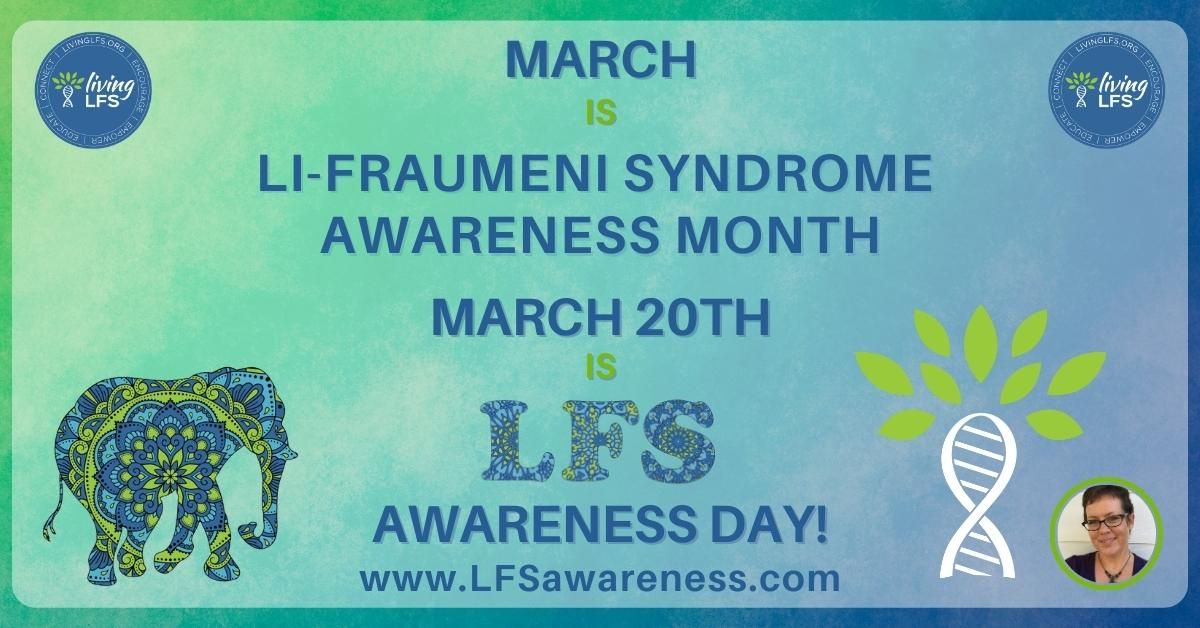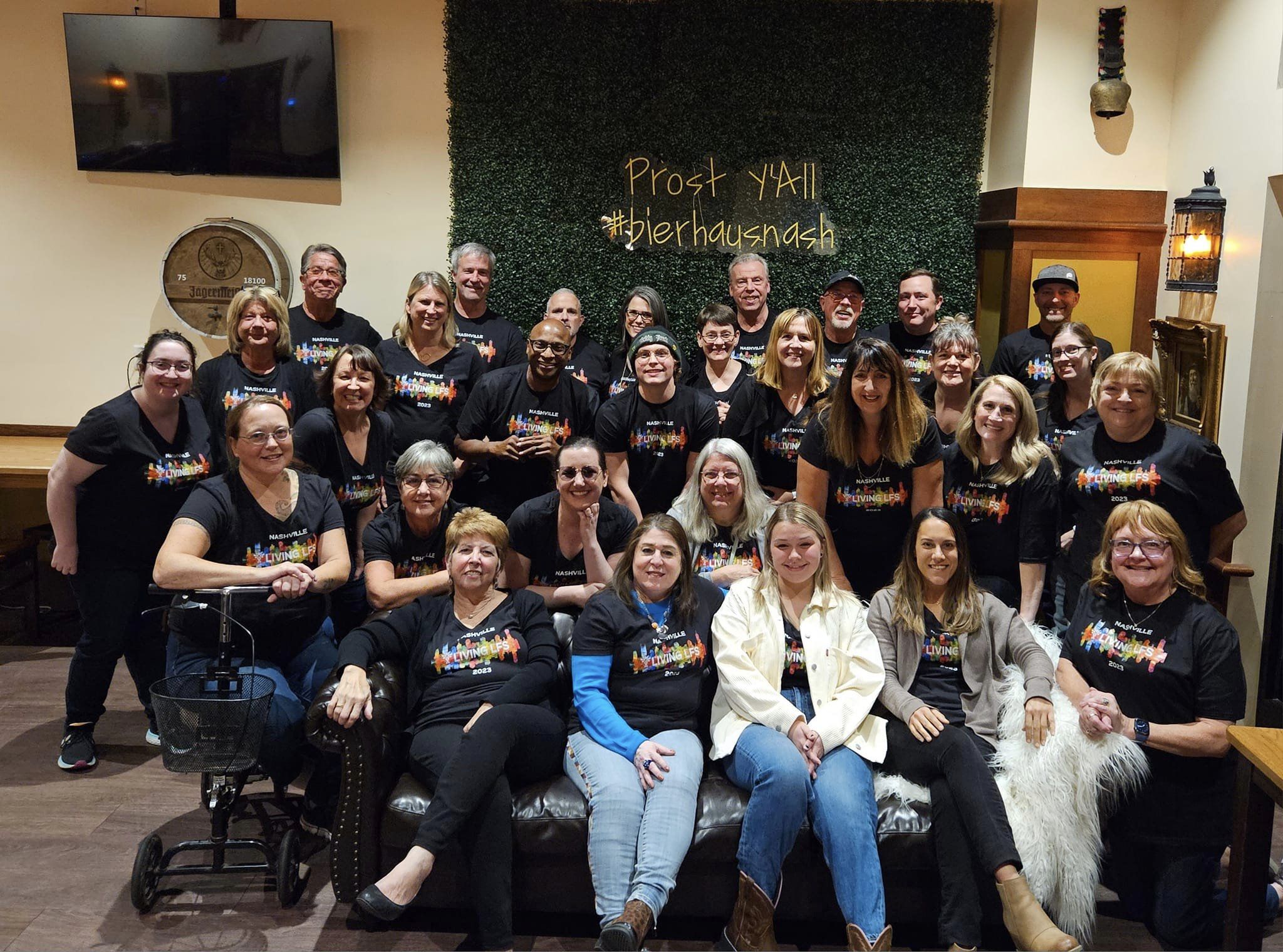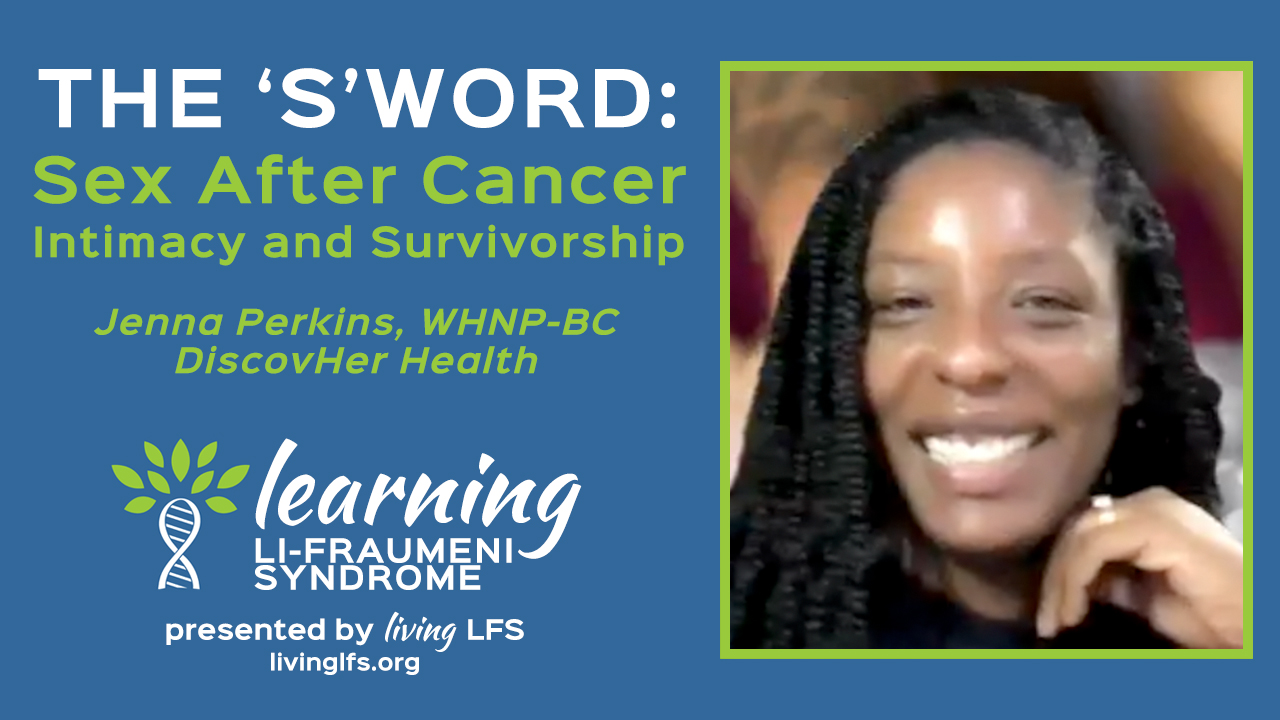What is Genetic Counseling?
Genetic Counselors are a group of professionals with a Master's level degree who work in clinics, hospitals, public health and private practice. According to the information by the National Society of Genetic Counselors at NSGC.org:
Genetic counseling is the process of helping people understand and adapt to the medical, psychological and familial implications of genetic contributions to disease. This process integrates:
- Interpretation of family and medical histories to assess the chance of disease occurrence or recurrence.
- Education about inheritance, testing, management, prevention, resources and research.
- Counseling to promote informed choices and adaptation to the risk or condition.
National Society of Genetic Counselors, 2005
In the case of LFS, the disease is inherited cancer predisposition. Cancer Genetics are very complicated. There are physical, social and emotional impacts when living with a genetic condition like Li-Fraumeni Syndrome. Genetic counselors have special training that helps them support patients, evaluate the risks of their condition, and get the best care for their rare situation.
National Society of Genetic Counselors. "What is A Genetic Counselor". Online video clip. You Tube. December 2, 2015.
What Do Genetic Counselors Do?
- See Patients
- Take Detailed Family History
- Help with Decision Making
- Provide Emotional Support
- Lots of Phone Calls
- with patients
- With labs
- with insurance
- With healthcare providers
- Order Genetic Testing
- Follow Up
- Help Discussions with Family
- Research
Many patients with LFS are referred to genetic counselors due to a personal or family history of cancer that follows any of the criteria for Li-Fraumeni Syndrome. They are referred by general practitioners, oncologists or specialists who recognize there might be a hereditary risk. Not all providers recognize LFS as a possible diagnosis and many patients do not receive valuable genetic counseling services before or after genetic testing that could help them better understand the disease and manage their care. A genetic counselor will take a detailed family history to evaluate if genetic testing for a TP53 mutation is appropriate. They can order the actual test and make sure all questions about the test, what it means, how it's done and follow up are covered. Genetic counselors also can help address many of the complicated emotional aspects that patients feel when considering testing, if it is right for them and their family and how to discuss such a sensitive topic with family members. Genetic counselors will go over the genetic test results, risk management, screening options and often help coordinate with insurance, labs, and healthcare providers. They are an invaluable resource to those living LFS.
Why is Genetic Counseling Important for LFS?
Genetic counselors are an important part of any LFS Healthcare team and are vital to patients' understanding of the syndrome, risk and treatment as well as helping with the very difficult emotional responses of finding you may have an inherited cancer risk.
According to an article in Genes & Cancer in April 2011, Dr. David Malkin expresses the valuable need for counseling as part of a multidisciplinary LFS Healthcare Team,
The multidisciplinary approach taken by several groups involving pediatric and medical oncologists, clinical geneticists, genetic counselors, psychologists, and ethicists in establishing cancer genetics clinics and programs provides a novel mechanism that should be considered standard to optimize care of these families and advance our understanding of the role of genetics in the etiology and management of LFS.
Above the medical aspects, psychosocial implications of testing and living with LFS are significant. Counselors have the knowledge and training to help families address very complex and recurring issues related to multiple diagnoses of cancer, stress and grief. From an article in Oncology Practice by Vogel and Shannon:
The nature of the disease leads to unique psychosocial implications, as LFS family members often experience many cancer diagnoses and deaths throughout their lifespan. Many parents will have to deal with a child’s diagnosis, and many children will deal with a parent’s diagnosis. It is likely that these repeated experiences of grief and stress pose a significant psychological burden.
Ambry Genetics. "Understanding Your Results- TP53". Ambrygen.com. 23 August 2016.
Knowing TP53 status can impact lifestyle, healthcare, family planning, screening and treatment choices. These issues can be complex and personal. Genetic counselors are wonderful resources to help navigate the tricky minefield of LFS.
How Do I Find a Genetic Counselor?
If you have been diagnosed with LFS, tested for LFS or are considering testing for LFS, genetic counseling is a vital part of the process. If you have not been referred to a genetic counselor, you can look for one locally. Genetic counseling is generally covered by insurance, although it is a good idea to check with your provider first. Counselors work in a variety of settings and do provide different services. Finding a counselor who specializes in cancer genetics is useful when being seen for LFS.
The National Society of Genetic Counselors (NSGC.org) has a Find a Counselor Tool to assist you in finding a counselor in your area:
NSGC FIND A Genetic Counselor Tool
If you have LFS and have not yet seen a Genetic Counselor, there are institutions that are familiar with LFS and are a good place to start to get information.
A few Cancer Genetics Programs Familiar with LFS:
NIH Division of Cancer Epidemiology and Genetics
Huntsman Clinic Family Cancer Assessment Clinic
In Canada:
Canadian Association of Genetic Counselors
In Australia/New Zealand:
Australasian Society of Genetic Counsellors
References
About Genetic Counselors. (2016, August 22) http://nsgc.org/p/cm/ld/fid=175
Malkin, David. “Li-Fraumeni Syndrome.” Ed. Arnold J. Levine. Genes & Cancer 2.4 (2011): 475–484. PMC. Web. 22 Aug. 2016.
Vogel, Kristen J and Kristen Mahoney Shannon Genetic Counseling and Testing for Li-Fraumeni Syndrome: The Psychosocial Implications Oncology Genetics. November 2009: 507-513. http://www.oncologypractice.com


